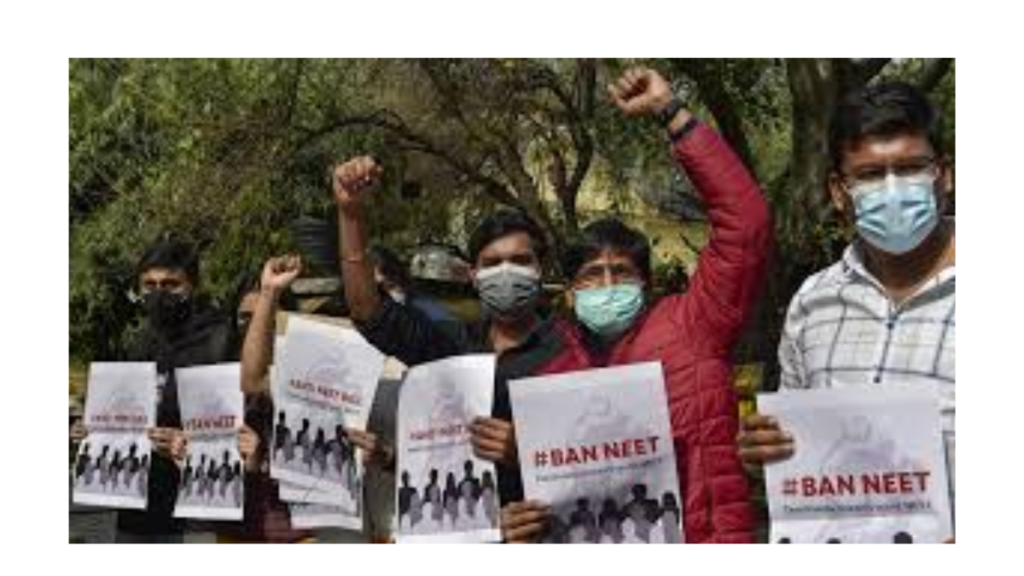Tamil Nadu approached the Supreme Court for quashing the rejection given by the President to its proposed bill that prohibits the State from using NEET in the medical admissions process.
The State’s original lawsuit, signed by counsel of record P. Wilson and argued by counsel Misha Rohatgi, asserted that a “grave constitutional deadlock” had occurred when the President refused to assent to the Tamil Nadu Admission to Undergraduate Medical Degree Courses Bill, 2021.
The State asserted that the 2021 Bill is taken to have become law, and asked the Supreme Court to declare the President’s refusal to assent to the Bill unconstitutional.
According to the State, NEET unduly favored rich, urban, CBSE-trained students who could afford years of private coaching while weeding out smart but disadvantaged kids from rural backgrounds, most of whom were schooled in government and Tamil-medium institutions.
The lawsuit stated that the 2021 Bill was enacted by an overwhelming majority in the State Legislative Assembly. Under Article 201 of the Constitution, the Bill was referred to the President for review by the Governor.
On Saturday, November 15, 2025, Tamil Nadu moved the Supreme Court seeking to quash the rejection by the President of the proposed bill prohibiting the State from using NEET for admission to medical courses.
The State’s original lawsuit, filed by senior counsel P. Wilson and represented by counsel Misha Rohatgi, said the President’s refusal to grant assent to the Tamil Nadu Admission to Undergraduate Medical Degree Courses Bill, 2021, has precipitated a “grave constitutional stalemate”.
The State explained that the 2021 Bill was taken to have become law and asked the Supreme Court to declare the President’s refusal to assent to the Bill unconstitutional.

Why is Tamil Nadu seeking an exemption from NEET?
The State had claimed that NEET unfairly benefitted wealthy, urban, CBSE-educated students who could afford years of private coaching while eliminating intelligent but disadvantaged kids from rural backgrounds, a majority of whom were educated in government and Tamil medium schools.
The 2021 Bill was passed by an overwhelming majority in the State Legislative Assembly, according to the lawsuit. Under Article 201 of the Constitution, such a Bill requires the Governor to send it to the President for consideration.
The State then addressed the complaints and clarifications by the Union Ministries, but the Presidential assent was rejected automatically without stating any reasons. The Governor’s secretariat announced the rejection by the President to approve the Bill on March 4, 2025. “The extent of the legislative autonomy of the State, constitutional federalism, the purport of Article 201, Article 254(2) – in the event of a finding of repugnancy of a State law with an existing Central law – and the fundamental obligation of the State, under Article 47, to protect public health by providing equal opportunities for medical education, form part of the important legal issues which this suit gives rise to and requires interpretation of the Constitution,” Tamil Nadu said.
According to the lawsuit, the State has always consciously devised its own admission process into professional courses. These systems, such as the CET, reflected the socio-economic realities of Tamil Nadu while maintaining standards.
After the CET was scrapped, the state passed the Tamil Nadu Admission in Professional Educational Institutions Act, 2006. The 2007 statute mandated that admissions should be strictly on the basis of Class XII Board marks and uniformity had to be maintained across Boards. Through open and merit-based admissions, the State’s medical and professional colleges churned out world-class physicians for a decade while maintaining high standards of medical education and an impressive Gross Enrollment Ratio of 47% at higher education, far exceeding the national average of 29%. The State contended that the Union government, under NEP 2020, aims for 50% by 2035. This balance, if any, was disturbed in the State since 2017 when the Centre uniformly enforced NEET.
As per the State, an in-depth analysis of the effects of NEET in 2021 established that a significant majority of stakeholders were in favour of the abolition of NEET in Tamil Nadu. “A parallel, highly commercialised coaching industry, which brings in thousands of crores every year, was fuelled by the NEET system.” First-generation students from government institutions are “essentially excluded”, it said, and over 70% of students in Tamil Nadu, who secured MBBS admissions post-NEET, were “repeaters”, Tamil Nadu submitted.
Do Follow: India faces major higher education expansion challenge to meet 2035 enrollment target: Report